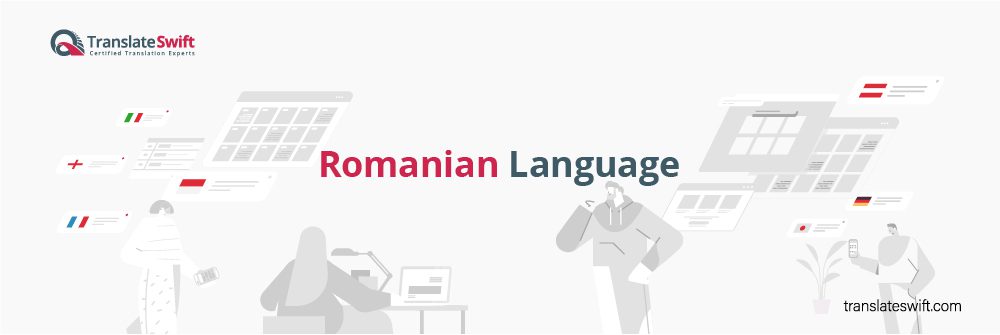
Evolution Spanning Centuries
Over 26 million people worldwide speak the Romanian language. It is a vibrant language that boasts a rich tapestry woven with history, cultural influences, and fascinating quirks. Unlike its Western Romance language cousins, Romanian’s roots lie in the Eastern Romance sub-branch. It traces its ancestry back to Vulgar Latin spoken in Roman Dacia (present-day Romania and Moldova) around 2,000 years ago.
The exact origin of Romanian remains a topic of debate among linguists. There are three main hypotheses: the continuity theory suggests Latin evolved in place throughout the Roman rule. Secondly, the migration theory proposes Latin speakers migrated north of the Danube River. And thirdly, the symbiosis theory posits a combination of both scenarios. Regardless of the specifics, Romanian emerged as a distinct language around the 10th century AD. It is significantly influenced by neighboring Slavic languages. This influence is evident in vocabulary related to everyday life, agriculture, and religion.
Fusion of Influences
Romanian’s journey didn’t stop with Slavic languages. Over the centuries, it absorbed elements from Greek, Turkish, Hungarian, and even Old Church Slavonic. This rich linguistic heritage is reflected in its vocabulary, with words like “carte” (book) from Latin, “mulțumesc” (thank you) from Slavic, and “cafea” (coffee) from Turkish.
Sounds and Structure
Romanian features a unique phonological system, with five vowels and a rich consonant inventory that includes sounds not found in English, like the rolled “r.” Its grammar, while complex, retains some fascinating features from Latin, such as the three grammatical genders (masculine, feminine, neuter) and three noun declensions. However, unlike some Romance languages, Romanian doesn’t rely heavily on verb conjugations, making it slightly easier for English speakers to grasp the basics.
Spoken Beyond Borders
Romanian serves as the official language of Romania and Moldova, binding these countries together through a shared linguistic heritage. Additionally, significant Romanian-speaking communities exist in neighboring countries like Ukraine, Serbia, and Hungary. This geographical reach is a testament to the language’s resilience and adaptability.
Literary Significance
Romanian literature is a treasure trove, brimming with works that showcase the language’s expressive power. From the epic poetry of medieval times to the poignant prose of contemporary authors, Romanian literature reflects the cultural and historical experiences of its speakers. Writers like Mihai Eminescu, the national poet of Romania, and Ion Druță, a prominent Moldovan novelist, have used Romanian to create masterpieces that resonate with readers across borders.
Preservation Efforts
In today’s globalized world, Romanian faces challenges from the dominance of English. However, efforts to promote and revitalize the language are ongoing. The Romanian Ministry of Education has an initiative that offers free Romanian language courses for foreigners.
Additionally, the Institute of Linguistics of the Romanian Academy published a Romanian language dictionary in 1975 called (Dicționarul explicativ al limbii române). This contains Romanian definitions, even offering etymology and usage examples to strengthen the understanding and appreciation of existing Romanian vocabulary.
Romanian translations by TranslateSwift
At TranslateSwift, we bridge the gap between languages and cultures. Whether you require Romanian translation for business documents, travelogues, or literary works, our team of expert linguists is here to assist you. We deliver accurate, reliable, and culturally sensitive translations, ensuring your message reaches its target audience with clarity and impact.
Other Languages
- English
- Spanish
- German
- Dutch
- French
- Italian
- Afrikaans
- Albanian
- Amharic
- Arabic
- Armenian
- Azerbaijani
- Basque
- Belarusian
- Bengali
- Bosnian
- Bulgarian
- Cantonese
- Catalan
- Cebuano
- Chichewa
- Chinese - Simplified
- Chinese - Cantonese
- Chinese - Traditional
- Chinese - Mandarin
- Corsican
- Croatian
- Creole
- Czech
- Danish
- Dari
- Esperanto
- Estonian
- Farsi
- Filipino
- Finnish
- Frisian
- Galician
- Georgian
- Greek
- Gujarati
- Haitian Creole
- Hausa
- Hawaiian
- Hebrew
- Hindi
- Hmong
- Hungarian
- Icelandic
- Igbo
- Indonesian
- Irish
- Japanese
- Javanese
- Kannada
- Kazakh
- Khmer
- Korean
- Kurdish
- Kyrgyz
- Lao
- Latin
- Latvian
- Lithuanian
- Luxembourgish
- Macedonian
- Malagasy
- Malay
- Malayalam
- Maltese
- Maori
- Marathi
- Mongolian
- Montenegrin
- Myanmar
- Nepali
- Norwegian
- Odia
- Pashto
- Persian
- Polish
- Portuguese
- Punjabi
- Romanian
- Russian
- Samoan
- Scots Gaelic
- Serbian
- Sesotho
- Shona
- Sindhi
- Sinhala
- Slovak
- Slovenian
- Somali
- Sundanese
- Swahili
- Swedish
- Tajik
- Tagalog
- Tamil
- Telugu
- Thai
- Turkish
- Ukrainian
- Urdu
- Uyghur
- Uzbek
- Vietnamese
- Welsh
- Xhosa
- Yiddish
- Yoruba
- Zulu
